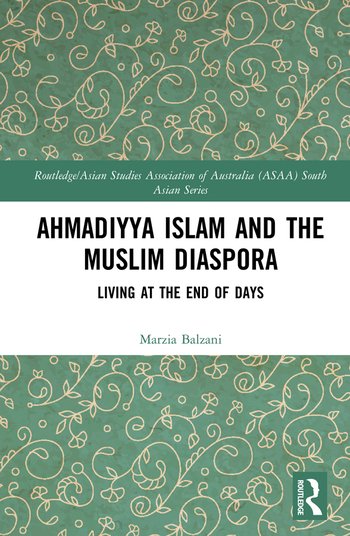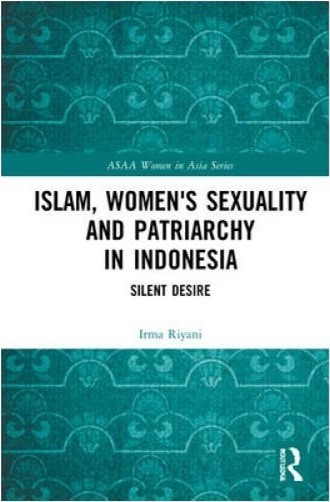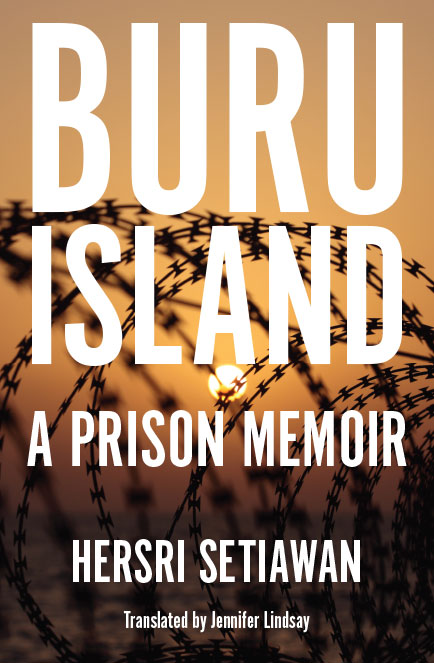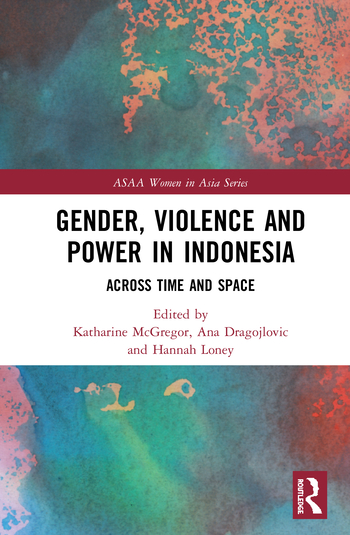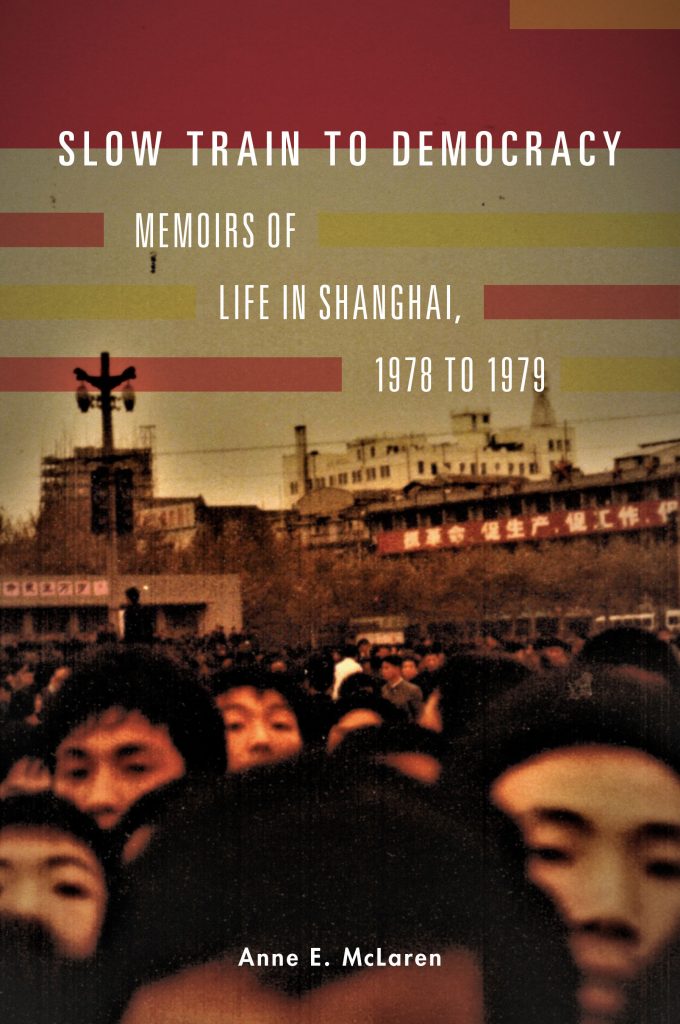Books
New Books from the ASAA Network
David Chapman and Carol Hayes (eds), 2019
Japan in Australia is a work of cultural history that focuses on context and connection between two nations. It examines how Japan has been imagined, represented and experienced in the Australian context through a variety of settings, historical periods and circumstances.
Beginning with the first recorded contacts between Australians and Japanese in the nineteenth century, the chapters focus on ‘people-to people’ narratives and the myriad multi-dimensional ways in which the two countries are interconnected: from sporting diplomacy to woodblock printing, from artistic metaphors to iconic pop imagery, from the tragedy of war to engagement in peace movements, from technology transfer to community arts. Tracing the trajectory of this 150-year relationship provides an example of how history can turn from fear, enmity and misunderstanding through war, foreign encroachment and the legacy of conflict, to close and intimate connections that result in cultural enrichment and diversification.
This book explores notions of Australia and ‘Australianness’ and Japan and ‘Japaneseness’, to better reflect on the cultural fusion that is contemporary Australia and build the narrative of the Japan–Australia relationship. It will be of interest to academics in the field of Asian, Japanese and Japanese-Pacific studies.
Marzia Balzani, 2020
This book is a study of the UK-based Ahmadiyya Muslim community in the context of the twentieth-century South Asian diaspora. Originating in late nineteenth-century Punjab, the Ahmadis are today a vibrant international religious movement; they are also a group that has been declared heretic by other Muslims and one that continues to face persecution in Pakistan, the country the Ahmadis made their home after the partition of India in 1947.
Structured as a series of case studies, the book focuses on the ways in which the Ahmadis balance the demands of faith, community and modern life in the diaspora. Following an overview of the history and beliefs of the Ahmadis, the chapters examine in turn the use of ceremonial occasions to consolidate a diverse international community; the paradoxical survival of the enchantments of dreams and charisma within the structures of an institutional bureaucracy; asylum claims and the ways in which the plight of asylum seekers has been strategically deployed to position the Ahmadis on the UK political stage; and how the planning and building of mosques serves to establish a home within the diaspora.
Based on fieldwork conducted over several years in a range of formal and informal contexts, this timely book will be of interest to an interdisciplinary audience from social and cultural anthropology, South Asian studies, the study of Islam and of Muslims in Europe, refugee, asylum and diaspora studies, as well as more generally religious studies and history.
Irma Riyani, (forthcoming in November 2020)
This book explores the intimate marital relationships of Indonesian Muslim married women. As well as describing and analysing their sexual relationships, the book also investigates how Islam influences discourses of sexuality in Indonesia, and in particular how Islamic teachings affect Muslim married women’s perceptions and behaviour in their sexual relationships with their husbands.
Based on extensive original research, the book reveals that Muslim women perceive marriage as a social, cultural and religious obligation that they need to fulfil; that they realise that finding an ideal marriage partner is complicated, with some having the opportunity for a long courtship and others barely knowing their partner prior to marriage; and that there is a strong tendency, with some exceptions, for women to consider a sexual relationship in marriage as their duty and their husband’s right. Religious and cultural discourses justify and support this view and consider refusal a sin (dosa) or taboo (pamali). Both discourses emphasise obedience towards husbands in marriage.
Christopher J. Shepherd, 2019
By presenting a history of Western ethnography of animism in East Timor during the Portuguese period, this intriguing study offers an original synthesis of the country’s history, culture and anthropology. The book consists of ten chapters, each one a narrative of the work and experience of a particular ethnographer.
Covering a selection of seminal 19th- and 20th-century ethnographies, the author explores the relationship between spiritual beliefs, colonial administration, ethnographic interests and fieldwork experience. It is argued that the presence of outsiders precipitated a new ‘transformative animism’ as colonial control over Portuguese Timor was consolidated. This came about because increasingly powerful outsiders posed threats and offered rewards to the Timorese just as the powerful ancestor spirits had long done; consequently, the Timorese ritualised their dealings with outsiders following their established model for appealing to spirits. Bringing colonial and professional ethnography into the one frame of reference, it is shown that ethnographers of both types not only bore witness to these processes of transformative animism, they also exemplified them.
“Redding’s approach is both novel and provocative. A Secular Need will make a unique contribution to the study of Islamic law as it is administered outside of the official judicial system in India.”
– Sylvia Vatuk, author of Marriage and Its Discontents: Women, Islam, and the Law in India
Whether from the perspective of Islamic law’s advocates, secularism’s partisans, or communities caught in their crossfire, many people see the relationship between Islamic law and secularism as antagonistic and increasingly discordant. In the United States there are calls for “sharia bans” in the courts, in western Europe legal limitations have been imposed on mosques and the wearing of headscarves, and in the Arab Middle East conflicts between secularist old guards and Islamist revolutionaries persist—suggesting that previously unsteady coexistences are transforming into outright hostilities.
Jeffrey Redding’s exploration of India’s non-state system of Muslim dispute resolution—known as the dar-ul-qaza system and commonly referred to as “Muslim courts” or “shariat courts”—challenges conventional narratives about the inevitable opposition between Islamic law and secular forms of governance, demonstrating that Indian secular law and governance cannot work without the significant assistance of non-state Islamic legal actors.
Hersri Setiawan, Monash University Publishing, 2020
Translated by Jennifer Lindsay and edited by Kate McGregor and Jennifer Lindsay as part of the The Herb Feith Translation Series
Buru Island was the site of Indonesia’s most remote and infamous prison camp. In the wake of the 1965 repression of the political Left, between 1969 and 1979 approximately 12,000 men were held on Buru without formal charge or trial.
During their detention prisoners suffered torture, forced labour and malnourishment, as well as social isolation.
This book is an edited translation of the Indonesian language memoir by the writer Hersri Setiawan (b.1936) who was detained for nine years, including seven on Buru Island: as a young writer filled with hope and optimism for Indonesia’s future he had joined the left-wing cultural organisation Lekra (Lembaga Kebudayaan Rakyat, Institute of People’s Culture). Setiawan shares an intimate account of his life story leading up to and during his detention. He brings into stark light the horrors of the period after 1965, which included disappearances, murder, torture, betrayal and loss, and his own capture and incarceration on Buru Island. This is a moving and at times harrowing account of human cruelty and, at the same time, a story of survival and hope.
Michael P Griffiths, Routledge, 2019
“Community Welfare Organisations in Rural Myanmar provides an original and timely analysis of Myanmar at the cusp of change, engaging with important themes of precarity, post-agrarian change and citizenship. Through extended ethnography, Michael Griffiths gives a rarely seen, in-depth account of Myanmar’s political and societal transitions, which readers will find both absorbing and insightful.”
– Elaine Lynn-Ee Ho, National University of Singapore, author of Citizens in Motion
This book provides an in-depth study of the moral economies emerging from within conditions of precarity in rural communities in contemporary Myanmar.
James C. Scott’s seminal work on ‘The Moral Economy of the Peasant’ argued that peasant notions of subsistence and expectations of reciprocity formed the basis for subsequent rebellion as economic conditions changed and new market forces were introduced. Now, nearly a century on, Michael Griffiths argues that the conditions faced by rural communities in Myanmar remain precarious, but different forms of moral economy shape their responses. In the contemporary context, the moral economy of rural communities is characterized by the emergence of localized, self-organized community welfare associations which adopt a sophisticated iteration of self-help framed by the Buddhist concept of parahita (altruism). This book analyses the performative nature of these welfare organizations as a form of politics, asking how notions of citizenship expressed in these organizations promote more inclusive, or more exclusive practices towards non-Buddhist minorities.
At a time when discourse on identity in Myanmar has been dominated by practices of othering and exclusion, this book provides an important analysis of what citizenship and reciprocity means in contemporary rural Myanmar. This book is a critical resource for researchers working on rural development and the social sciences in Southeast Asia.
Edited By Katharine McGregor, Ana Dragojlovic, Hannah Loney, Routledge, 2020
This book uses an interdisciplinary approach to chart how various forms of violence – domestic, military, legal and political – are not separate instances of violence, but rather embedded in structural inequalities brought about by colonialism, occupation and state violence.
The book explores both case studies of individuals and of groups to examine experiences of violence within the context of gender and structures of power in modern Indonesian history and Indonesia-related diasporas. It argues that gendered violence is particularly important to consider in this region because of its complex history of armed conflict and authoritarian rule, the diversity of people that have been affected by violence, as well as the complexity of the religious and cultural communities involved. The book focuses in particular on textual narratives of violence, visualisations of violence, commemorations of violence and the politics of care.
“To truly understand China, it is important to remember how much it has changed in the last forty years. Anne McLaren happened to be there during the dramatic transition period of 1978-79 and meticulously recorded events and opinions of the so-called “ordinary people,” youth and students as they abandoned Marxism-Leninism-Mao Zedong.
Thought and moved bravely towards the new world of economic reform and open door policies…This book is a precious resource for researchers and general readers who are interested in the China of those days or China today.”
Jocelyn Chey, AM, Visiting Professor, University of Sydney, served as Cultural Counsellor in the Australian Embassy, Beijing, from 1975-1978, and as Consul-General in Hong Kong from 1992 to 1995.
Slow Train to Democracy offers a rare insight into everyday life during the first year of the reform movement that created the China of the twenty-first century. It comprises analysis of the social and political movements in Shanghai from 1978 to 1979 together with a set of primary documents, letters and diary entries recorded by the author during her stay in Shanghai from 1978 to 1979. The book reveals a vast outpouring of grievances by ordinary people at a time of dramatic social change. Late 1978 saw the emergence of protest movements in numerous Chinese cities. People called for an end to the disastrous policies of the Maoist era and for a new political system where the rulers could be made accountable. Some called for the rule of law and constitutional government. Democracy was a key term employed by demonstrators. The Square was given a new banner as “Democracy Forum”. A wall poster stated proudly: “The Democracy Train is in the Square”.
In This Section
Overview
Asian Currents
Articles
Subscribe or Submit
Asian Studies Review
Book Series
Women in Asia
East Asia
South Asia
Southeast Asia
Reports
New Books from the ASAA Network


